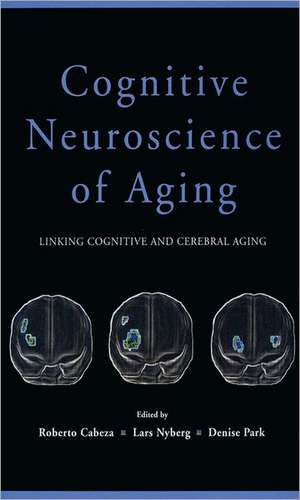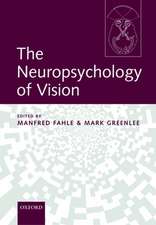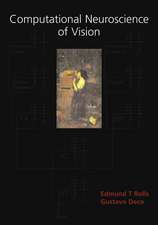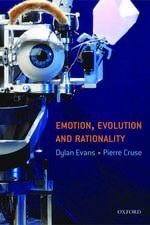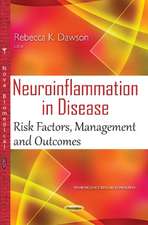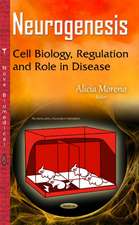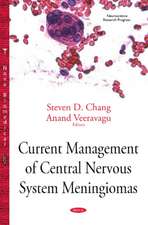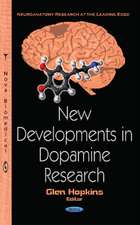Cognitive Neuroscience of Aging: Linking Cognitive and Cerebral Aging
Editat de Roberto Cabeza, Lars Nyberg, Denise Parken Limba Engleză Paperback – 27 ian 2010
Preț: 373.22 lei
Preț vechi: 512.06 lei
-27% Nou
Puncte Express: 560
Preț estimativ în valută:
71.41€ • 74.56$ • 59.11£
71.41€ • 74.56$ • 59.11£
Carte tipărită la comandă
Livrare economică 24-31 martie
Preluare comenzi: 021 569.72.76
Specificații
ISBN-13: 9780195388220
ISBN-10: 0195388224
Pagini: 408
Dimensiuni: 234 x 155 x 15 mm
Greutate: 0.63 kg
Editura: Oxford University Press
Colecția OUP USA
Locul publicării:New York, United States
ISBN-10: 0195388224
Pagini: 408
Dimensiuni: 234 x 155 x 15 mm
Greutate: 0.63 kg
Editura: Oxford University Press
Colecția OUP USA
Locul publicării:New York, United States
Recenzii
This is an ambitious undertaking...chapters dense in information, but actually it works...
This excellent book marks the advent of a new discipline, the cognitive neuroscience of aging. It comprehensively covers measurement tools, empirical findings, and theoretical models. Editors and authors are leading scholars of this evolving discipline. I highly recommend this book to everyone interested in the intriguing dynamic between brain and cognition in old age.
This is the right book, by the right authors, at the right time. The editors have assembled most of the leading investigators taking a neuroscience approach to the study of cognitive aging, and have asked them to write integrative reviews of the existing literature and to speculate about productive directions for future research. The result is not only a compendium of, in the editors' words "state-of-the-art knowledge about the cognitive neuroscience of aging in 2004," but a valuable source of ideas for research over the next 5 to 10 years.
This excellent book marks the advent of a new discipline, the cognitive neuroscience of aging. It comprehensively covers measurement tools, empirical findings, and theoretical models. Editors and authors are leading scholars of this evolving discipline. I highly recommend this book to everyone interested in the intriguing dynamic between brain and cognition in old age.
This is the right book, by the right authors, at the right time. The editors have assembled most of the leading investigators taking a neuroscience approach to the study of cognitive aging, and have asked them to write integrative reviews of the existing literature and to speculate about productive directions for future research. The result is not only a compendium of, in the editors' words "state-of-the-art knowledge about the cognitive neuroscience of aging in 2004," but a valuable source of ideas for research over the next 5 to 10 years.
Notă biografică
Roberto Cabeza is Professor in Psychological and Neuroscience at Duke University, where he is core faculty at the Center for Cognitive Neuroscience and senior fellow at the Center for the Study of Aging and Human Development. He has conducted pioneering studies on functional neuroimaging of aging, and he is the author of an influential model regarding the effects of aging on the lateralization of brain activations. In 2003, he received the Young Investigator Award of the Cognitive Neuroscience Society for his research on functional neuroimaging of memory and cognitive neuroscience of aging. Lars Nyberg received his Ph.D. in 1993 from Umeå University, then completed his postdoctoral research with Endel Tulving at Rotman Research Institute on PET studies of memory functions. He is currently Professor of Neuropsychology at Umeå University, where his research focuses on brain imaging studies of cognitive functions in younger and older individuals. Denise Park is Professor ofPsychology at the University of Illinois at Urbana-Champaign, where she is Co-Director of the Center for Healthy Minds at the Beckman Institute. She is past chair of the Board of Scientific Affairs of the American Psychological Association and a member of the American Psychological Society's Board of Directors. She has published extensively on age-related changes in memory processes and has directed most of her recent work to the cognitive neuroscience of aging.
